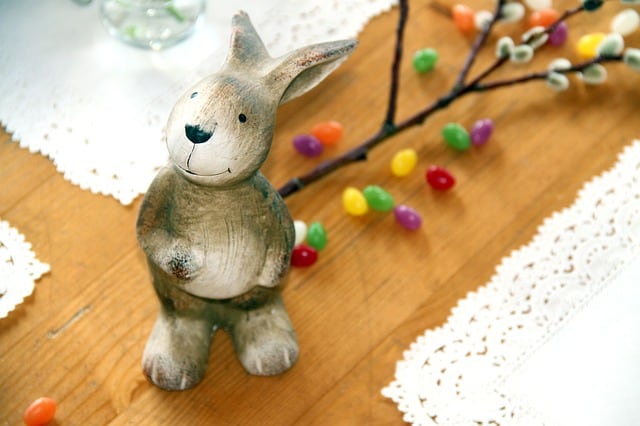Celebrate
– Fierce Fiction by William Cass – November 1, 2018

Marcia chose the little photography shop in North Park because one of her work colleagues had recommended it. She’d called the day before and had been told that, yes, they could make several copies from an old eight-by-ten black and white photo.
She stopped in the next morning at eleven. A young woman in a store smock with blue hair and a nose ring stood in front of the counter tapping the screen on her cell phone. She regarded Marcia with exasperated aloofness as she slid the phone into her jeans pocket. Marcia came up to her, explained what she wanted done, and handed her a file folder with the photo. The young woman took it out and held it gingerly by one of its tattered corners. Marcia could only glance at it because it was her favorite of her father. In it, he was about her age, fortyish, and had just gotten off his motorcycle. He was holding their old pug, Boog, with two hands after lifting him out of the zipped front of his leather jacket where the dog always rode. It was taken in the days before helmet laws in California, and her father wore his long hair under a bandana. His bearded face smiled at the dog behind mirrored sunglasses. It was how she thought of him at his most robust prior to all the drugs and steady decline, and long before the strokes and other debilitating medical problems. It was how she wanted to remember him.
The young woman turned the photo over, examined the back side, flipped it face up again, and set it on the counter. She fixed Marcia with a dull stare. “What kind of matting do you want? Glossy, matte, or luster?”
Marcia looked down at the image, then back at the young woman. “It’s my father,” she said. “And he just passed away.” She fought the familiar hardness tightening her throat, but a snorted sob escaped her, and then she was crying uncontrollably. Through her tears, she saw the young woman blinking at her and was aware of a small, old man in rimless glasses who’d lifted the corner of a curtain behind the counter and was peeking out at them.
“I’m so sorry,” the young woman said suddenly. She stretched out her arms. “Let me give you a hug.”
Marcia allowed herself to be closed into the warmth of the young woman’s embrace. She stayed there for several moments until the shaking of her shoulders slowed and eventually stopped. Then she stepped away, took a tissue from her jacket pocket, wiped her eyes, and blew out a long breath. The old man had disappeared behind the curtain again. There was a faint murmur of traffic from the street. Sunlight streamed dustily through the big front window.
The young woman closed the photo in its folder and said, “Why don’t you let us decide on the finish? We’ll try it each way and choose the type that seems best.”
Marcia nodded gratefully.
“When do you need them by?”
“Is four o’clock too soon? I have to go to an event at work and could stop back afterwards.”
“Four is fine.” The young woman lips creased into a hopeful smile. “We’ll have them ready.”
Marcia nodded, sniffled once, and left the shop, the door tinkling behind her.
On her drive up to the hospital, she gave up trying to guide her thoughts and simply let them tumble over themselves. She thought of riding on the back of her father’s motorcycle with him in the years before he moved out of their apartment in Inglewood not long after that photo had been taken. She was ten when he left. She thought of visiting him and his longtime girlfriend, Jimena, at their cabin in the mountains of Sequoia during high school and afterwards where they eked out a living; Jimena waited tables at a nearby lodge, and he guided snowmobile riders in the winter and worked part time as an auto mechanic until he could begin collecting Social Security. She thought about Jimena’s death and moving him down to live with her in San Diego afterwards.
His care needs weren’t too consuming at the beginning; Marcia could leave him alone in the apartment while she was at work for the first five years, but after his second stroke, she had to hire a caretaker to come in for most of each weekday until she could take over during her non-work hours. The last few years had been the most difficult; towards the end, he needed help using the bedside commode and she had to get up a half-dozen times each night because he’d become too weak to use the rails on his rented hospital bed to reposition himself. But, he’d been generous with her when her mother had not, dipping into his small inheritance to help her pay for college and graduate school. At the time of his death at seventy-two, he had four hundred dollars of that left.
It was easy to find a parking spot in the employee lot on a Saturday behind the hospital unit for severely-handicapped/medically fragile children where she was the social worker. She got out of the car and looked at the familiar, drab, cinder-block building: fifty-five beds that were always full. Virtually all of the patients had trachs, G-tubes, wheelchairs, would never be developmentally more than several months old, and depended on others for all their living needs. Most had been with them for years, many since just after birth. Their unit was kind of a barely visible or acknowledged wing of the larger children’s hospital, tucked away in its far corner behind the cafeteria and laundry room.
 When she came in through the front doors, staff members were already scurrying about getting ready for the Easter Family Party. One of the CNA’s was helping another into a bunny costume on the side of the foyer, and several others were laying out holiday crafts and games in the activity room when Marcia came into it. She walked out through the sliding glass doors into the interior courtyard where folding tables and chairs had been arranged. Their recreational therapist was in an apron and already had the grill going in one corner, and the three-piece jazz trio who volunteered there regularly was setting up in another.
When she came in through the front doors, staff members were already scurrying about getting ready for the Easter Family Party. One of the CNA’s was helping another into a bunny costume on the side of the foyer, and several others were laying out holiday crafts and games in the activity room when Marcia came into it. She walked out through the sliding glass doors into the interior courtyard where folding tables and chairs had been arranged. Their recreational therapist was in an apron and already had the grill going in one corner, and the three-piece jazz trio who volunteered there regularly was setting up in another.
The trio’s leader caught her eye and waved. She walked over to him and said, “Thanks for doing this again, Will.”
He smiled. “No problem.”
She watched him snap the stand for his keyboard into place. He was the father of a girl who’d been a patient there a long time ago and had stayed with them for over a year until he could find adequate nursing to bring her home. Like many of the couples Marcia had dealt with there, Will and his wife were divorced, their split occurring not long after their daughter was brought back home. Will handled most of her care needs himself for a while, but then his ex-wife began taking their daughter at the end of each week. When that happened, Will started volunteering to have his trio play at the unit for the patients. He was an elementary school teacher, the drummer was a barber, and the bass player was a retired florist; they came every other Friday afternoon after work to play in the activity room for an hour or so, as well as for occasional special events like the one that was about to begin.
“Well,” Marcia said, “It’s very nice of you guys. Give up part of your Saturday like this.”
“Happy to do it,” Will told her. “You expecting a big crowd?”
Marcia shrugged. “Well, only a handful of families responded to the invitation I sent, but a few more than that might come.” She looked at him. “You know how it is.”
“I do.” Their eyes held as he nodded. “Say, how many years have you been here now?”
She raised her eyebrows, considering. “Oh, pretty near fifteen, I think.” She laughed. “Getting old, Will.”
“You’re not old,” he told her. “You’re not old at all.”
She thought he perhaps had a decade on her. She smiled and regarded his eyes, down-turned at the outside edges. Though wearied by circumstances with his daughter, they’d always seemed kind to her, gentle. The charge nurse called her name. She nodded to Will and walked towards the voice.
The event went better than she expected. More than a dozen families came, wheeling their children who were patients to the activity room or the courtyard. The other patients, even those with vents, were pushed out to the party in stages, ten or so at a time, and attended to there by nurses. The CNA in her bunny costume was a big hit and led an Easter egg hunt for the patients’ younger siblings about halfway through. Will’s trio kept the music going steady, and a few visiting family members even danced a bit; when the nurses weren’t suctioning trachs, wiping drool, or monitoring portable equipment, some rocked patients in their wheelchairs back and forth to the music, too. Marcia helped with the activities she’d coordinated, served food, and circulated among the families, visiting with each. With the music, the smell of the barbecue, and the laughter, things had the celebratory feel she’d hoped for.
The last meal was served at three, the music ended around the same time, and all the patients were back in their rooms shortly afterwards. Marcia said goodbye to the final visiting family at the front doors as Will approached carrying his big keyboard case. She held the doors open for him and followed him outside onto the landing.
She said, “Thanks again, Will.”
He set the case down on the concrete. “It went well, I think.”
“It did, yes.”
They exchanged smiles standing in freckled shadows from the cypress tree that fronted one side of the entry doors. Its branches rustled in the small breeze.
“Well, then,” Will said. “Guess I’ll see you later.”
Marcia nodded. She watched him lift the case again and start down the long ramp. After a few steps, he stopped abruptly and turned around.
“So, listen,” he said. “I was wondering if you’d like to go for coffee together sometime.” He hesitated. “Or lunch, if you’d rather, a drink…anything.”
Marcia knit her eyebrows as a flush spread through her. Her fingertips moved to her lips, then away. “Are you talking about a date?”
His shrug was sheepish. “I guess. I mean, if you want to call it that.”
The expression at the edges of his eyes was even more pronounced than usual. She felt herself nodding, and his eyes brightened, widened.
“Okay,” he grinned. “Great. I’ll give you a call here on Monday, then, and we can plan something.”
“All right.” She nodded again and smiled herself.
Will returned the nod, picked up his case, and continued down the ramp. Marcia watched the back of him until he disappeared around the corner of the building towards the visitors’ parking lot. She couldn’t remember the last time she’d gone out with anyone. For certain, not since she’d brought her father to live with her. And it had been several years before that when she’d found her longtime live-in boyfriend asleep behind the wheel of his crookedly parked car in their driveway at 3AM with a partially full bottle of beer between his legs. That had been the last straw with him, and she wasn’t interested in seeing anyone else in the aftermath. She pursed her lips, shook her head, and pushed back inside to help with the party clean-up.
Marcia got to the photography shop a little after four. The old man was alone behind the counter and looked up when she shut the tinkling doors behind her. He smiled as she approached and said, “Your photos. They’re all done.”
He reached behind him and took the folder she’d brought in from a shelf. He opened it gently in front of her on the counter. He placed the original on one side and fanned out four matted copies of the same size on the other. Marcia touched one of the copies, then looked at the old man and said, “Perfect.”
He adjusted the glasses on his nose. “You know I used to have a dog like your dad’s. A little smaller.”
“That right?”
They looked at each other until he said, “Yes.” He paused. “And I remember what it was like to lose my dad, too. That’s a long time ago now, but I haven’t forgotten. It was very hard.”
Marcia felt the tightness in her throat again but was able to swallow over it. She wiped a tear away from the corner of one of her eyes.
The old man patted the back of her hand. “My granddaughter and I worked on these together. We spent some time deciding on the matting and liked this one best. Closest to the original.”
Marcia nodded.
“Who are the copies for?”
Marcia breathed deeply once. “My aunt – his sister. A couple of nieces. And his son, my half-brother. We’re having a ceremony together on a boat on Wednesday to spread his ashes at sea. I want to give them each a photo then.”
“That sounds nice.”
Something came over her, and she blurted, “My half-brother just met him before he died.” She didn’t know why, but she kept talking. “My aunt located him through some ancestry website. His mother and my dad had divorced when he was three after my dad had gotten involved with my mom. My dad couldn’t afford child support, so he didn’t contest it when she moved away, and they lost touch afterwards. His name is Ross, and he looks just like my dad did in this picture. Even rides a motorcycle. He drove it down from L.A. and we got to spend an hour or so together, the three of us. That was all my dad, our dad, could stay awake for.”
A long moment passed before the old man said, “But it was something. It happened.”
“It was. It did.”
“I’m glad. For all of you.”
Marcia nodded again. “We’re going to play a Stones CD, his favorite, while we lower the ashes into the water.”
“Celebration of life.”
“I hope so, yes.”
He closed the photos into the folder and passed it across to her. The bill was paper-clipped to the front, and she handed him money for the payment. A marine layer had descended since she’d left the hospital, and the light in the shop had begun to fall.
“Thank you,” Marcia said. They exchanged a last small smile, then she turned and left.
The air outside had turned cold and damp. Marcia set the folder on her passenger seat, turned the idling car’s heat to low, and sat thinking as the interior warmed slowly. She’d had vague plans to start packing up things in her father’s room when she got home, but she wasn’t sure she was up to it. Instead, she let her thoughts wander to Will. Coffee with him would be fine, but lunch might be even nicer. It would take a bit longer; they could get to know each a little better. There was nothing wrong with that. If it went nowhere afterwards, it didn’t matter. A siren wound off across town, and a dog barked somewhere nearby. She thought: just two people sharing time together. Two beating hearts, a kind of celebration of its own.
–
 About the Author – William Cass
About the Author – William Cass